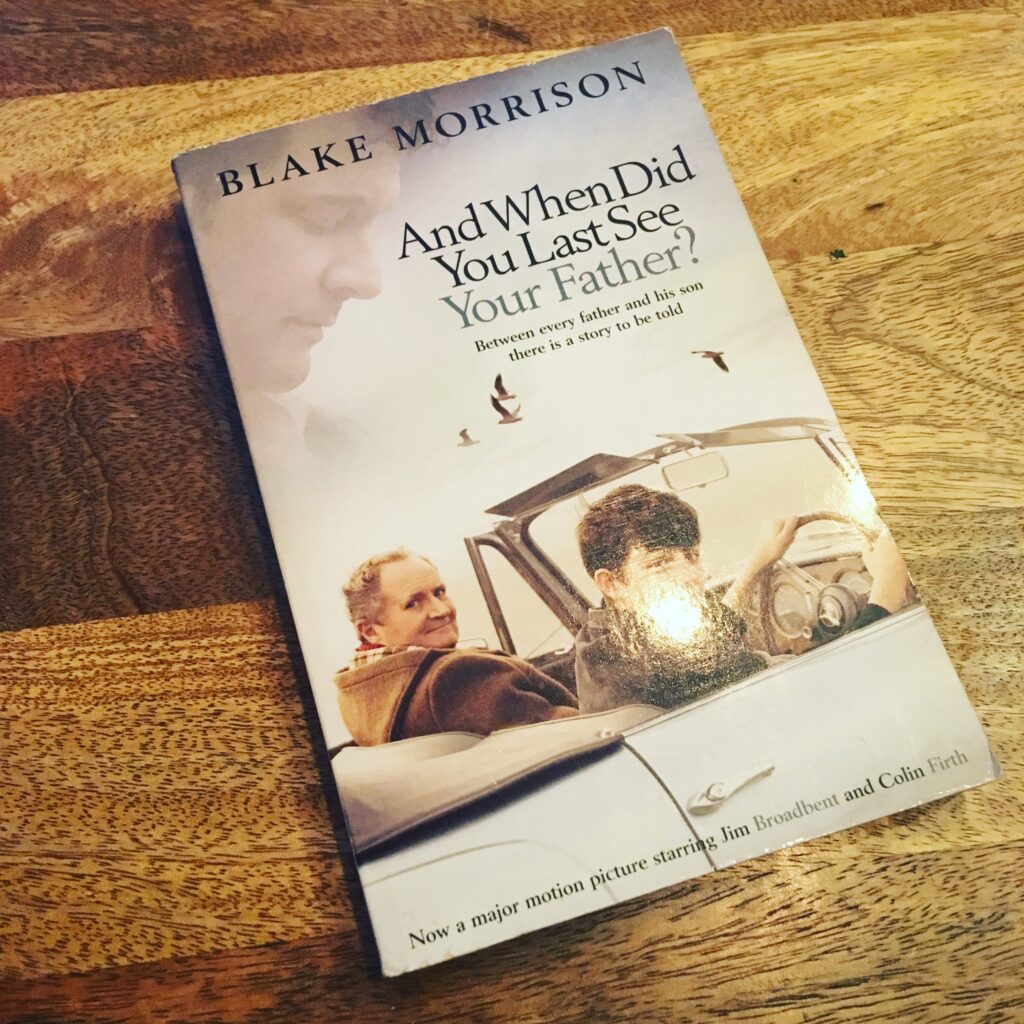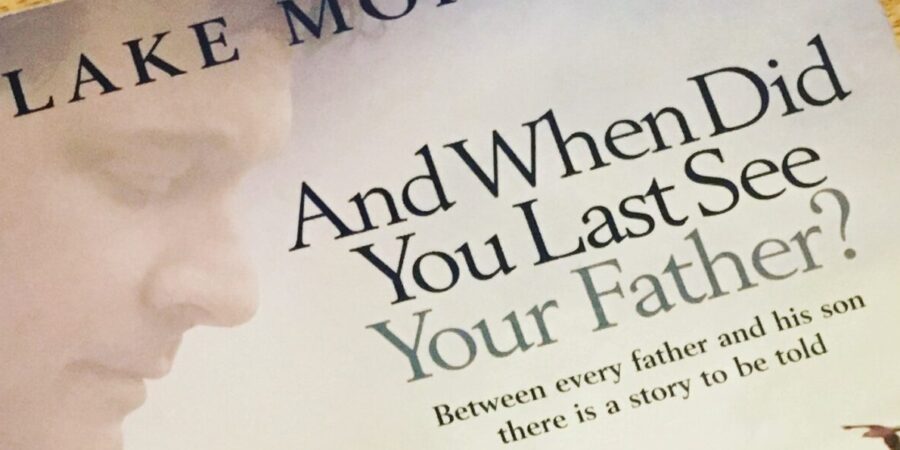The books that made me write my book PMSL – Or how I Literally Pissed Myself Laughing and Survived the Last Taboo to Tell the Tale, (which is published in the UK next week).
And When Did You Last See Your Father is a critically lauded book by poet, writer and editor Blake Morrison. It has been made into a film, but stands out as a key work in deeply personal memoir which takes you into, at times, the most confessional spaces, the creepiest, most shameful and difficult memoiries, the search for truth in perhaps the most compliex and labyarinthine world of memories – the ordinary family.
I love this book, and it was one of the biggest inspirations behind PMSL. I don’t have anything particularly clever to say about it, because my reaction to this, to it, was visceral and emotional, responding in kind to his forensic analysis of the everyday.
It is also a book with some clear discussions of bodily taboo, blood and shit and sweat and tears. I wanted to be reminded that even the most difficult and unmentionable things could be spoken about with care and attention, could be given detailed, kind, inspection, that ordinary if horrible stories could be validated by description and retelling.
His exploration of the emotional resonance of the taste and touch and smell and sound of everything, even and especially the more mundane and unremarkable things, we see and live with. He’s all about the rising heat and smell of horseshit in the morning, the physical sensuality of enchantment when you see a new infant, the solitary spartan empty smell of a bed you slept on as a teen, now long vacated and only borrowed again as an adult.
Morrison is a poet and a salesman of the normal and the domestic. And When Did You Last See Your Father, felt exhilaratingly honest the first time I read it. Painful even. As the question repeats and repeats and we realise that the things we feel we’ve known all our lives are not necessarily simple or clear to us.
It showed me so much about writing too. How to reference art and other books. How to explore family and relationships. Jumping around in the narrative he even blurs the standard, distinctions between autobiography, biography and memoir. Autobiography or biography is your life, or someone else’s, from year 0 to now (often actually to death if someone else can add an extra chapter or two on the third edition). Memoir takes a piece of your life, a moment or an important time, place or theme and focuses on that. Morrison takes all three, throws them into the aging magimix left on the kitchen worktop in his old family home and bitzes them until they’re all intermingled.
And When Did You Last See Your Father takes the most inevitable and often devastating evolution of life – the death of a parent – and kicks it into the long grass of reminiscence, floating time, self-reflection, critical awareness, walls of ignorance. It also tackles head on the grim bodily truths of dying and decay, the smells of cancer wards, the heat of tears, the memories of wetting the bed. These were things I needed to really try to honour without becoming gory or salacious, the hardest things to talk in a way which would give the reader space to breathe, and think about themselves, whilst encompassing the worst kind of intense feelings like anger, shame, incredulity, depression, paranoia, body horror and self-disgust.
The specifics of his father’s life are both completely obscured by Morrison’s own self-reflection and self-absorption. And yet also, somehow, gradually brought it into cut glass focus. The question, after all, has many answers, including ‘I’m not sure I’ve ever clearly ‘seen’ my father at all?’
He talked about things I thought I knew about when I first read it – like love, life, art, literature, education, friendship, thoughts, nostalgia, people, writing – and rewrote them in front of my eyes with his visceral memories of a man who was so many things: a tyrant, a teacher, a professional, a chancer, a possible philanderer, a liar.
With the smell of car seats in the summer on a day to the races and the papery thinness of old skin stretched and baggy over a dying body, the sight of someone diminished in the now, made stronger in the all aroundness that people take on when they die. I re-read it when I couldn’t work out how to write a memoir and someone pointed out how much I’d raved about it.
It didn’t disappoint, though it certainly intimidated me. I may never manage to do something so straightforward, so devoid of tubthumping. But it was important to remember it, especially after loving the film but fearing it had snuck in, like water into squash, diluting it and removing any difference, changing the substance of both.
It is also a book with some clear discussions of bodily taboo, blood and shit and sweat and tears. I wanted to be reminded that even the most difficult and unmentionable things could be spoken about with care and attention, could be given detailed, kind, inspection, that ordinary if horrible stories could be validated by description and retelling.
Which is the point of PMSL and writing a book not a one off blog post or an article. To given a subject and an experience, which is more common than we all admit, and far less discussed and treated than it should be, some proper time and space. To raise questions, and offer experiences which should, could, may allow others to feel confident enough to own their slightly messy stories and stigmatised bodily truths, and help them feel supported, know help is possible, and remember they are not alone.


always a major fan of linking to bloggers that I adore but do not get quite a bit of link adore from Anetta Cecil Gorrian